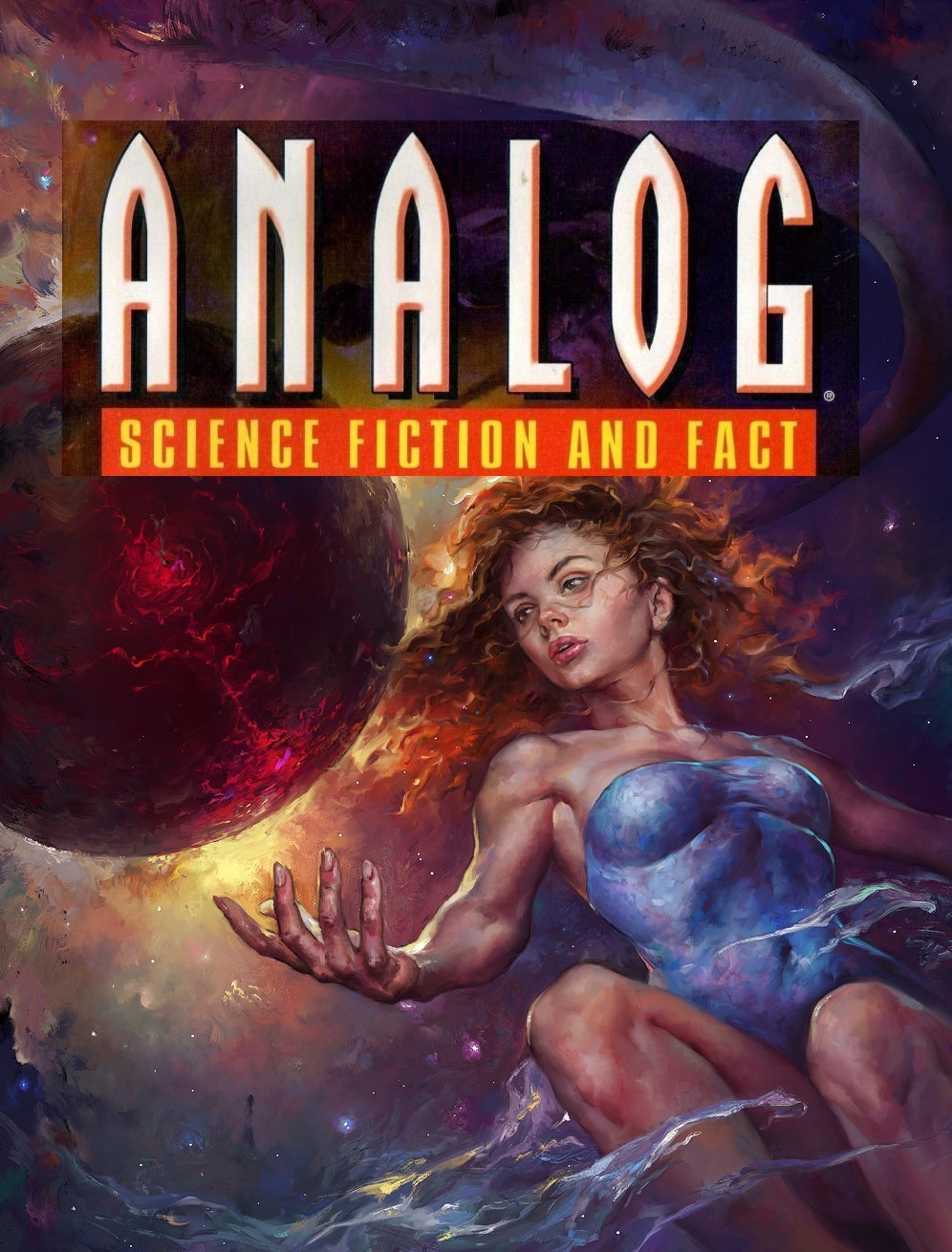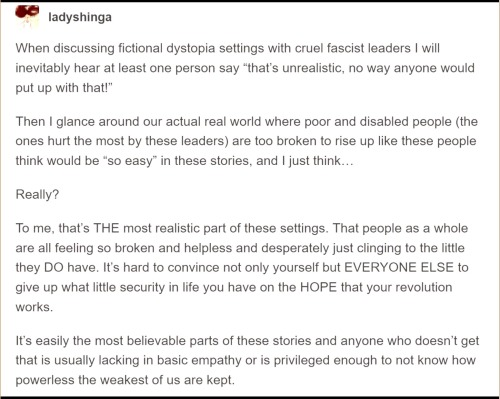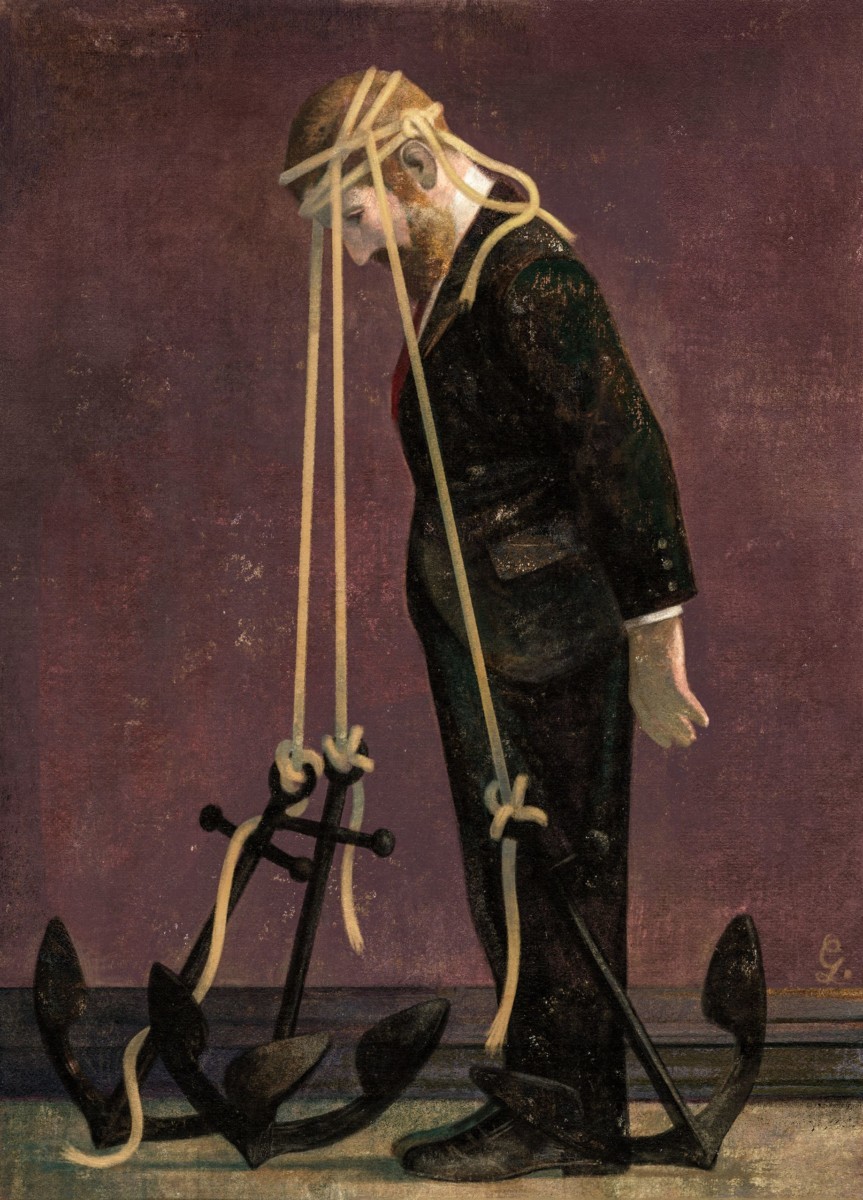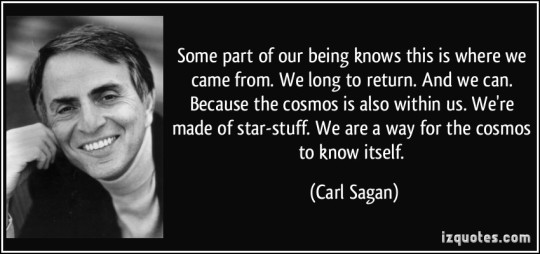Analog just published my essay, “Literal Metaphors, Science Fiction, and How to Save the Human Species” on their Astounding Analog Companion (available online here: X).
It’s a companion piece for my novella - “Ashes of Exploding Suns, Monuments to Dust” - out right now in the November / December issue of Analog Science Fiction & Fact magazine (available on newsstands for a few more days, or digitally from the publisher).
I’m very interested to hear what people think of the piece (and the story if you read it!), particularly the Sad and Rabid Puppies, because it’s ostensibly just the kind of thing they like: A space opera spanning vast distances and times, packed with super-tech (I invented a new method of moving stars!), interstellar war, and other elements of hard SF - even a protagonist who’s a spaceship captain….
But it subverts the conventional space opera and military narrative to tell an (ultimately) optimistic tale of social justice and hope for humanity. Plus (though I only provide clues and see no reason to call this out in the text) the ace protagonist’s gender is never revealed, because they’re the first-person narrator in a non-patriarchal society (so why bring their gender into it at all?) and there’s no romance, plus aces need better representation in hard SF and I feel the metaphor performs double-duty for this narrative.
Gender only plays an important role in the imperialist “Original Man” humans of Sol System - that’s our Earthly culture projected into the far future, clinging to obsolete social and political concepts while the “Descendent Species” scattered across the stars have moved on in varying ways.
What prompted the essay was getting a letter from a reader who wrote a deeply insightful, thoughtful, and kind analysis of what I was hoping to do with my story. He asked if I’d intended for the protagonist’s struggles with their parents to parallel the narrative of the Descendent Species to Original Man.
[Read on for more non-spoilery excerpt, or see the full thing at The Astounding Analog Companion]…

Ever since reading Iain M Banks’ Consider Phlebas - a novel that helped launch the vessels of the New Space Opera - I’ve believed that the science-fiction mode of inquiry offers the most effective set of tools for examining ourselves and our creations, providing fresh perspectives while opening new dialogues about everything it means to be human encountering change.
One of SF’s greatest tools is the literal metaphor, where an actual, literal thing in the story can stand in metaphorically for something in our world, as a means to critique that thing without immediately throwing up defensive walls against admitting we’ve failed in some way or otherwise need to improve [spoilers trimmed].
This is exactly the quality response every author hopes to hear from readers – when people “get it”—so of course I’m delighted! He was absolutely right about what I was hoping to say through the various layers of literal and metaphorical elements and relationships [spoilers trimmed]. Through these parallels, I hoped to show how each generation passes down the worst—also the best! but also the worst—aspects of themselves to their children. And so on, and so on, until humankind eventually destroys itself.
Unless we can change.
The point of the story isn’t just that we must change to survive the ever-increasing burden of terrible cultural diseases we seem to always pass down—the things that’ll lead to our demise if we don’t—but also that we can change. Even those squeezed by society’s most-oppressive systems, and their forebears’ worst and most-destructive inherited ideas, and their own parents’ worst traits… even those collapsing under the burden of all that awfulness, who are most filled with repressed anger and guilt and need to prove themselves—even suffering the horrific tragedy of losing every single person in their entire world—even such a person bent on revenge to the point they’re about to commit genocide, one most deserving to fulfill their revenge, can change. And learn. And grow. And… maybe not forgive, but accept the offered (genuine) amends.
And then to move on to create something better. To choose hope for the future for humankind, one where we accept the best our parents’ culture—even the best of whatever our earliest ancestors still have to offer, for they surely had some good ideas, too, or else we’d never have formed the first tribes and confederacies. We can accept some things, and discard others that we determine to be destructive to the self, those closest to us, or to the larger culture we love and which brought us into the world and nurtured us. And especially to those yet to be born, generations in the future.
This reader also asked about whether I was trying to say something about how age leaves the Karalang [the protagonist's culture] more vulnerable to primal emotion. This I wanted to address less directly, as I’m only part-way through life right now and cannot fully answer the question for decades yet to come - or centuries, if I were Karalang! But I’ve witnessed enough during my years and through studying human history to observe that many resist change, whether or not it’s good for them or even necessary to remain valuable, contributing members of society. We’ve all seen how many people give in to despair and fear.
Only when people make a habit of constantly becoming better can we build something new and beautiful on the (solid portion of the) foundations poured by those who came before. Only then can humankind reach for the stars without condemning our children’s children’s children to suffer the consequences of and fallout from our pride or honor, bigotry or hate, shame or jealously, selfishness or revenge, or any of a thousand other human faults and frailties. Only then can humankind grow into the best possible version of who we can be, and build a better future than we could before, because humankind becomes better people than we are today.
This goes for our species, yes, and also for each and every one of us, every single day. Becoming better is an endless project—renouncing the flawed people we’ve been before, confessing to and apologizing for the harms we’ve caused, and then making amends to those who must live with the world we’ve created and trying hard to never do those wrongs again.
The very least we can do is treat others, especially the young, better than we’ve been treated. The least we can do is hand tomorrow’s people a cultural and intellectual inheritance that’ll provide them with the tools and resources they can use to shape their future and themselves into something better than we could have imagined or done. And then to get out of the way and trust them to do better.
That’s why I was so moved when another reader wrote, “This is a story that believes in humanity and our future.” Yes, thank you!
As much as I’ve witnessed humans being terrible—and often worse with age, not because of any inherent aspect of aging, but because so many resist change and growth (embodied in the literal metaphor of the long-lived, rigid-minded Karalang culture in the story)—I’ve also gotten to know the younger generation just stepping onto the world’s stages and command centers, and as a group they are the best human beings I’ve ever encountered.
I work with dozens of new students every year, and the trend I see is toward ever-better humans who are ever-more aware of how others feel and want to do something to help. At a very young age, they’re aware of how they (and society) need to always grow and change, to not only tolerate others but love them as kin, to accept and be kind. And to speak out against hate and intolerance. They’ve been handed an inheritance of ashes and dust, yet rather than let their (well-deserved) anger drive them to react with righteous hatred, they choose to let go of the worst aspects of human nature once they become aware of them, and move on when they’re allowed.
Sure, we’re also seeing actual Nazis walking our streets. Humankind remains infected with all the old hatreds and cultural diseases, courtesy of our ancestors. But the cross-cultural, internet-fostered solidarity we’re seeing among today’s youth proves that we as a species are worthy of hope. Because we can be better—the proof is that we (as a species, embodied in today’s youth and many older folks who with generosity adapt and change as needed) are becoming better.
Humankind’s greatest strength arises from cooperation. We didn’t survive the age of saber-tooth tigers by arming ourselves with devastating weapons; no, we thrived despite such dangers because we cooperated with one another and other species.
The ever-increasing power of our technology and other creations combined with the destructive personal and cultural memes we’ve inherited from our forebears threatens the very survival of our species. The only way we save humankind from itself is through solidarity and growth. Not by banding together against a common enemy until it’s defeated, but by joining together to build a better tomorrow.
When we respect our children and the other youth among us; when we ourselves learn how to be our best and how to build a better society, then share with others how we can all become better, always; when we respect but critically evaluate our elders and the knowledge, wisdom, and so-called truths they offer or impose upon us, accepting the good and discarding the bad; when we seek to build a better future, we as a species will get (and deserve) to inhabit a better world. That’s cooperation making us healthy and happy and strong.
I believe in humankind. I believe in people. And I believe in the future. That’s why I’ve always loved science fiction so much, why I’ve read and studied and taught it for most of my life, because I believe SF provides the new perspectives we need to more clearly see ourselves and the world around us, study it, identify the good and bad, and then create new narratives for better ways to live.
In a Summer 2011 Paris Review interview, Samuel R Delany said, “Science fiction isn’t just thinking about the world out there. It’s also thinking about how that world might be—a particularly important exercise for those who are oppressed, because if they’re going to change the world we live in, they—and all of us—have to be able to think about a world that works differently.”
No wonder SF is more popular today than ever among the people poised to take the reins of society. Yes, all the recent controversy in the field has been hugely disruptive. But change is always disruptive, and if nothing else science fiction is the literature of change, not only reflecting and projecting scientific, technological, and cultural change, but also itself ever-changing. This is not our first bout of internal strife.
All we need do is look back over the generational shifts from Proto-SF, through the Pulp Era, the Golden Age, the thematic and literary growth of the Sociological SF period, the New Wave, the diversification and novel-heavy period of the ’70s, Cyberpunk, the New Space Opera, the New Weird, and now the explosion of non-Anglo speculative fiction that’s finally seeing print in the US and other major markets—as if SF has only ever been a European creation.
What’s next? Something great I bet, and certain to be different, reflecting our genre’s heritage of incorporating change at our core so what we produce continues to be true to expressing the human condition experiencing change. Not just surviving it, but finding new ways to thrive.
To be true to what SF has always been and continues to be—that is, to remain relevant—our community of writers, editors, readers, scholars, and everyone else who cares about the genre must embrace change and guide the genre into an ever-changing future. If not, we’ll end up a historical footnote.
Thankfully, I’m confident that won’t happen. Why? Because I contend that what we’ve recently seen in geek subcultures reflects larger cultural changes:
First came Gamergate, which ended with the Gamergaters losing face and much of their influence, because the vast majority of gamers can’t stand playing with jerks—and most game companies don’t want to be associated with them. The gaming community voted with their dollars and creativity against hate.
Then the Rabid Puppies yelped onto science fiction headlines. They tried to erase women, LGBTQ folks, people of color, non-Anglos, and others they see as “not real SF” people from the genre. But the majority of SF readers defeated them so thoroughly in the first year that most Hugo Award voters preferred “No Award” over permitting any nominee to win that was forced into their laps by bigots, racists, and women-haters. We’re still feeling the repercussions of this, but soon things will settle down.
Now American society’s broader #metoo and social justice movements are exposing the misogynists, white supremacists, and other hate- and fear-driven people (studies show represent only 6% of US citizens) who would steal this country from the majority of decent people who only want to help each other build a stronger, healthier place to live, who only want to create a better future. And not just in the USA! Sure, business and politics at the highest levels—exemplified by the kleptocrats in the US Capitol, the Kremlin, and other seats of power—seem to have the upper hand plus vocal support from screaming bigots. But the recent US election demonstrates that most people reject egocentrism, hate, and regressive politics, even though so many have been taught these and other harmful ideologies by previous generations. I predict we’ll see them fail soon, too.
Those derogatorily called “Social Justice Warriors” by the haters might come across as intolerant of intolerance. To which I say, Good! We must never tolerate hate. You can’t fight actual, literal Nazis using only flowers and free love. It took a devastating world war to stop them last time. The social-justice movement is far from militarized; its only tools are persuasion and cooperation. Do they sometimes come across as angry, even irrational? Who wouldn’t, especially after spending a lifetime suffering bigotry, hate, and violence without the support of or comfort from their own communities, government, or even family?
I hope the current rise of the extremist Right fails before we’re forced to endure another dystopian period: Look what it took to defeat the Third Reich. The repercussions of that misstep were horrors beyond most of our imagining, and correcting it took generations. And in regards to this particular conversation, it ended up starving the roots of SF’s Golden Age, ending that blossoming period and throwing the next SFnal generation into an era of despair centered around the New Wave’s metaphor of entropy. I mean, everything has worked out for SF, and it’s become much more diverse in terms of race, gender, and other cultural representation, but let’s not go through that again, okay?
I believe justice and freedom will prevail. Eventually, and always. Sometimes the transition is quick and (relatively) painless. Other times it’s brutal and wrecks everything for a while. But I believe in humankind’s resilience and basic redeemable nature, that most of us want what’s best for the future.
At its finest and most admirable, science fiction is much the same. We’re going through some rough change right now, and many of our most-respected creators and editors are suffering because of it (some needlessly, and others because they’ve not grown as human beings and earned their callouts). I admire and respect those with the greatest cultural privilege who’ve responded to criticism with grace, accepted the error of their ways, and seek to improve themselves, no matter how they were raised, or their age, or other excuses some offer for resisting necessary change and growth.
Adapt, change, grow: That’s how humankind remains the dominant life-form on Earth. And it’s why I believe SF is the dominant literary form and mode for expressing the human condition encountering change—not just surviving, but thriving as we, ourselves, change.
The narrator of “Ashes of Exploding Suns, Monuments to Dust” muses at one point [spoilers trimmed]:
What is honor? Perhaps it’s the satisfaction of knowing that the world ahead will be better than what lays smoldering in your wake. That you’re part of shaping a new path.
Whatever it is, honor only blooms after making peace. With one’s self, with others, with the uncaring Universe. For all our history, humans were driven to make peace when the cost of fighting grew too dear. Despite what Original Man long believed, empire bestows nothing. You cannot win honor; it cannot be taken. It must be earned. It’s also not other-directed, like [the story’s concept of fidalguia]. That was only selfishness and fear masquerading as social concern.
The most difficult peace to negotiate is within. No smiling lie can deceive the person aware of their own mind. There is no greater achievement than learning how to forgive yourself.
Like the people at the end of this story, I look forward to the day when we are finally worthy of respect. When we can look up at the stars and see countless bright futures for the children of humankind. When we as a species finally reach adulthood. Not the rigid adulthood of the past, but something new. Wiser. More honorable. Hopeful.
At least for a little while.
Anyhow, I hope you enjoyed this snippet! If you read the essay on The Astounding Analog Companion (or the story in the magazine!), please comment there or here to let me know what you think. Thanks!
- Chris















 Did my thing at the
Did my thing at the 
 Sturgeon, born in 1918, was closely identified with the Golden Age of science fiction, 1939-1950, and is often mentioned as one of the four writers who helped establish that age. The others were Isaac Asimov, Robert A. Heinlein, and A. E. van Vogt; all four had their first SF stories published in 1939. In addition to fiction (his best-known novel is the classic,
Sturgeon, born in 1918, was closely identified with the Golden Age of science fiction, 1939-1950, and is often mentioned as one of the four writers who helped establish that age. The others were Isaac Asimov, Robert A. Heinlein, and A. E. van Vogt; all four had their first SF stories published in 1939. In addition to fiction (his best-known novel is the classic, 





